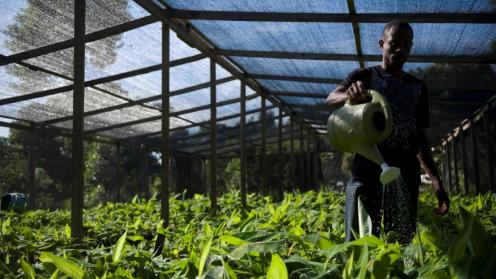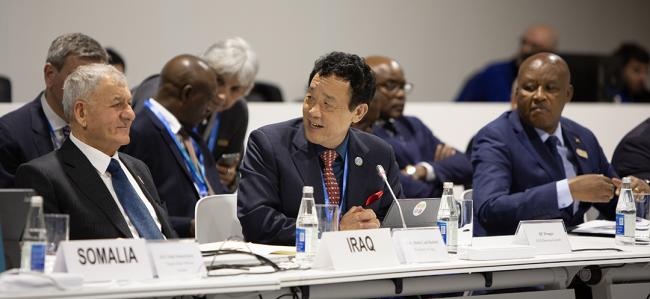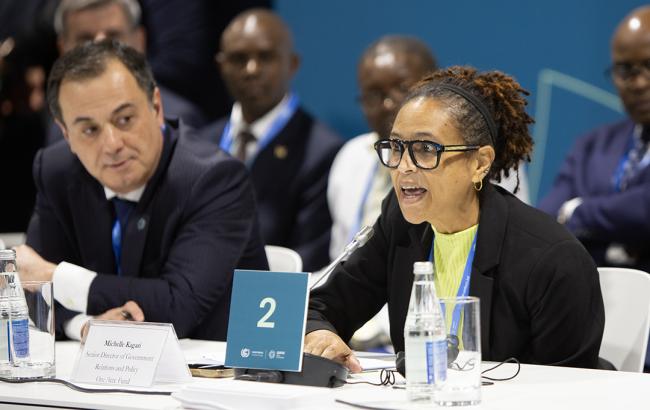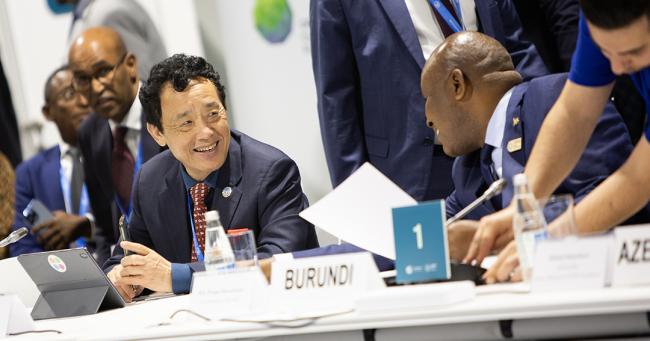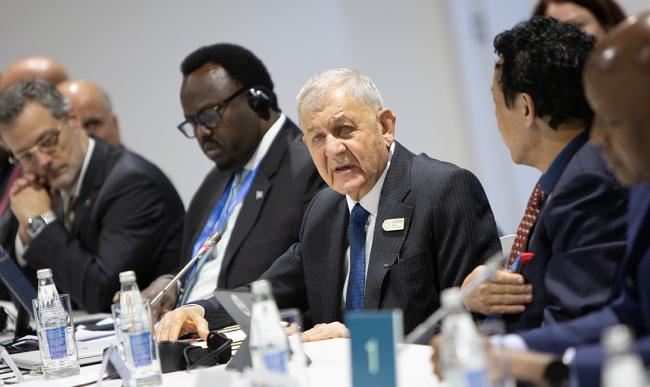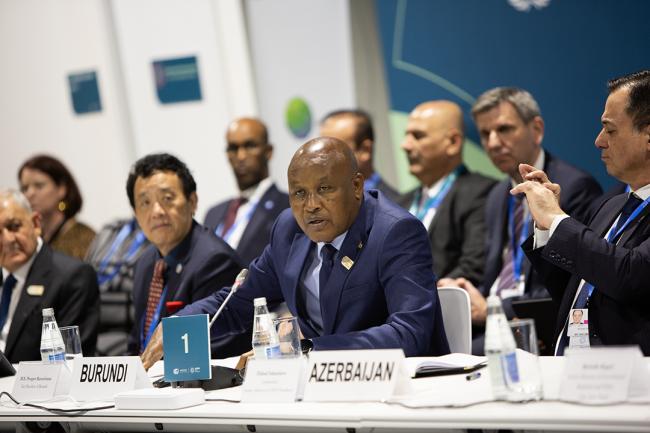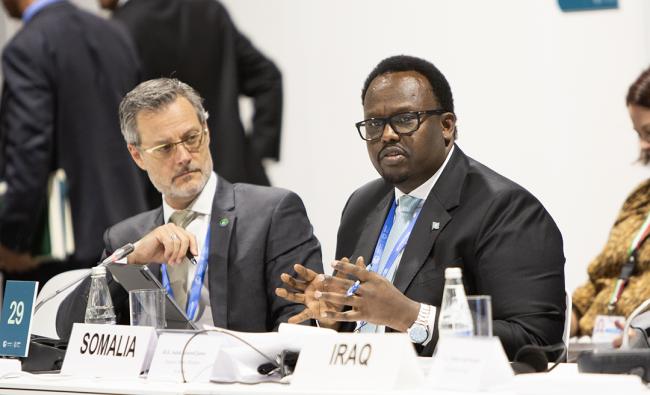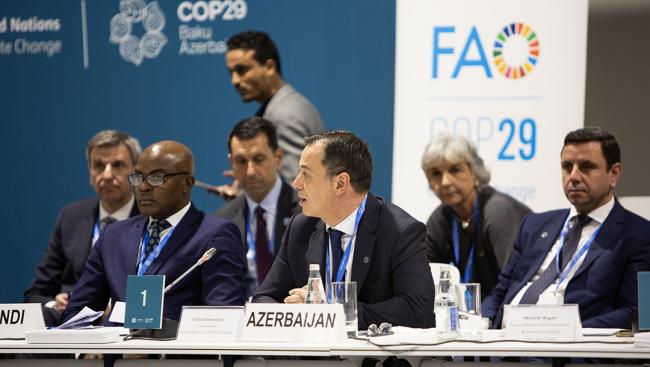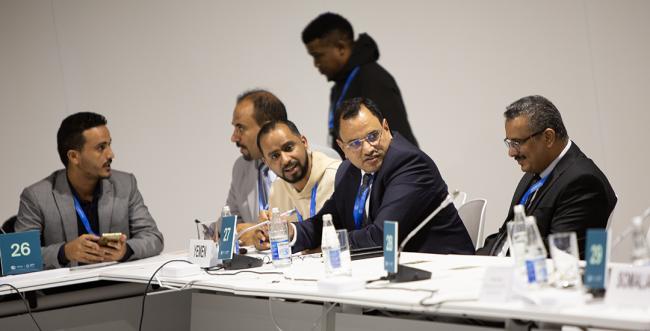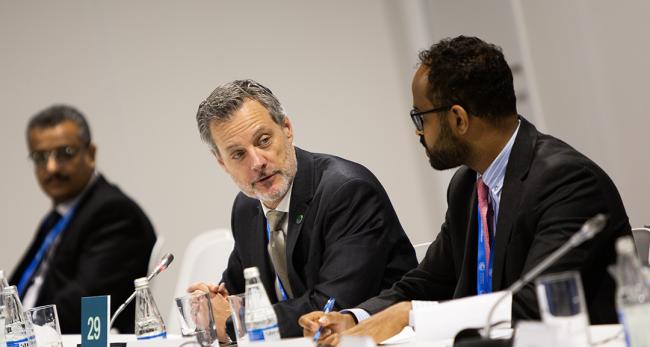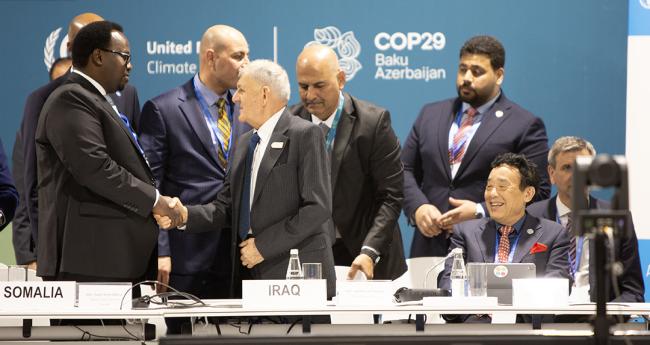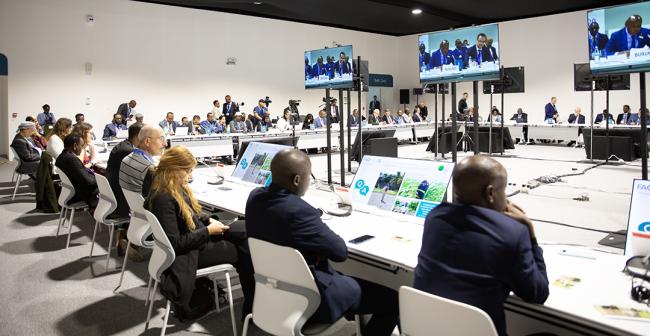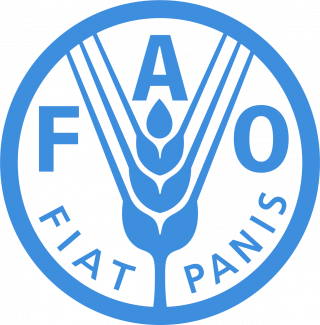About
In the face of a massive gap in finance for countries impacted by fragility and conflict, a side event explored investment projects to scale up delivery of climate-resilient agriculture and water management systems, ecosystem restoration, and climate information services in Somalia, Iraq, and Burundi.
Communities and countries impacted by fragility or conflict face major hurdles as they try to adapt to climate change, but they receive the least support for building climate change resilience. At this high-level event, panelists discussed the importance of Green Climate Fund (GCF) investments to support adaptation, in vulnerable and fragile contexts, pointing to examples from recently approved GCF projects in Iraq and Somalia, led by the Food and Agriculture Organization of the UN (FAO), and in Burundi, led by the One Acre Fund. These investments, totaling USD 169 million, are part of a continuing commitment to scale up the delivery of climate-resilient agriculture and water management systems, ecosystem restoration, and climate information services to the most vulnerable farmers and communities.
Michelle Kagari, One Acre Fund, moderated the event. QU Dongyu, Director-General, FAO, opened the event by emphasizing how these investment projects have answered the call issued in declarations from COP 28, such as the COP 28 UAE Declaration on Sustainable Agriculture, Resilient Food Systems and Climate Action and the Climate Relief, Recovery, and Peace Declaration, to bolster funding in countries facing fragility and conflict.
Director-General QU Dongyu underscored that the projects in Somalia, Iraq, and Burundi will, among other benefits, build climate resilience in agrifood systems in rural communities and improve access to water. In Somalia, the project will promote sustainable land management and develop value chains. It will also restore degraded land and train farmers and pastoralists in climate-smart agriculture. In Iraq, he continued, the project will improve water-use efficiency and upgrade irrigation canals to improve the production of food, which will “empower rural communities to cope with climate shocks.” The project in Burundi will improve climate resilience in rural communities and help them “survive, recover, and thrive,” Dongyu said.
During the panel discussion, leaders of Iraq, Somalia, and Burundi underscored how the projects will enhance climate resilience.
Abdul Latif Rashid, President of Iraq, emphasized that his country is facing a shortage of water, which has been impacted by reductions in rainfall, rising temperatures due to climate change, and conflict. “Without rain we cannot have enough water. If it is wasted we cannot have water,” Rashid noted, pointing to the need for water management solutions.
Improving access to water requires not only finance but expertise in negotiating with countries that share water resources at a “just level,” Rashid said, noting that expertise and advice is also needed for harvesting and managing water.
Prosper Bazombanza, Vice President of Burundi, highlighted the impact of climate change on small-scale farmers and welcomed the partnership with the GCF and One Acre Fund to address climate resilience in Burundi. Bazombanza noted that the project will increase resilience directly and indirectly for 2.3 million people through agrifood system changes such as improved seed and fertilizers that can help farmers create small enterprises. “That will be a game changer for small-scale farmers,” Bazombanza said. The project will also plant trees to capture carbon and help develop the capacity to assist farmers.
Salah Ahmed Jama, Deputy Prime Minister of Somalia, emphasized that the empirical evidence is showing that more of the world’s poor are living in fragile and conflict-affected societies but the amount of climate finance for these countries totals 4% of the amount of climate finance globally. Additionally, climate and conflict are driving more people to fall into poverty. Somalia is now experiencing intensifying cycles of flooding and drought, “disruptive shocks that disrupt the livelihoods of our citizens,” Jama said, while noting that the GCF and FAO investment project in his country is “trying to address the root causes of these crises.” He pointed to the need for smart irrigation systems and technology transfer and said that Somalia is working to provide a social safety net for its vulnerable communities, with climate finance a central element of the government’s national transformation plan.
Eishad Iskandarov, Senior Adviser to the COP 29 Presidency, underscored that the “topic of conflict and climate interlinkage is becoming a pressing topic of our times.” He emphasized that countries most vulnerable to climate change are receiving nine times less assistance per capita than other least developed countries and that rules and procedures for unlocking finance must be changed. He also pointed to the Baku Call on Climate Action for Peace, Relief, and Recovery, to be launched on Relief, Recovery and Peace Day (15 November), aimed at achieving partnerships to scale up support for vulnerable populations. Iskandarov said “we are building the bridge and it’s time for climate action for vulnerable people, and for us to run, not just walk over this bridge.”
Salem Abdullah Eissa Al-Socatri, Minister of Agriculture and Irrigation and Fish Wealth, Yemen, shared his country’s experiences with conflict and increasing impacts of climate change. Al-Socatri emphasized that 75% of the population rely on agriculture and fishing and 50% rely on livestock, and 17 million people are now facing food insecurity. “We are affected a lot by climate change, but not contributing to climate change and we call upon increased climate investment” Al-Socatri said.
Closing the high-level event, Charles Ehrhart, GCF, underscored that “for some people the real crisis seems to be around the corner, but for people in fragile and conflict-threatened countries, the crisis is here.” Ehrhart added the GCF is backing FAO and One Acre Fund to “reduce vulnerabilities of communities who are on the frontlines of a problem they did not create,” and while adaptation finance has doubled, it needs to be developed faster. He noted that this will require the efforts of both the public and private sectors, and that the innovative projects in Somalia, Iraq, and Burundi are “truly inspiring.”
Contact: Liva Kaugure I Liva.Kaugure@fao.org
Organizer: FAO
Website: https://www.fao.org/
To receive free coverage of global environmental events delivered to your inbox, subscribe to the ENB Update newsletter.
All ENB photos are free to use with attribution. For 2024 UN Climate Change Conference Baku - Side Events , please use: Photo by IISD/ENB | Angeles Estrada Vigil
